For A Moment, That Black And White Photo Should Seem Like A Full Color Image. (You Have To Keep Both



For a moment, that black and white photo should seem like a full color image. (You have to keep both the image and your head very still).
This illusion was used in the new BBC Four series Colour: The Spectrum of Science.
It demonstrates a phenomenon called “cone fatigue.” When we stare at the purple hillside in picture above, photoreceptors in our eyes called cones are stimulated. They send a signal to our brains that says “You’re looking at something purple.” But the sensing ability of those cones decreases the longer we stare at the image - those receptors are, in a way, temporarily used up.
Then when we look at the black and white image, those same cones can’t detect any purple light. Instead they sense the color that remains: green.
More Posts from Smartler and Others
(Credits go to TaySwiftVidz)
What Have We Learned About Pluto?
Earlier this year on July 14, our New Horizons spacecraft successfully flew by Pluto. During this encounter, it collected more than 1,200 images of the dwarf planet and tens of gigabits of data. The intensive downlinking of this information began on Sept. 5, and will continue for around a year. With the information being returned for the duration of a year, we still have a lot more to learn about Pluto. Here are a few things we’ve discovered so far:
Pluto’s Heart

An image captured by New Horizons around 16 hours before closest approach displays Pluto’s “heart”. This stunning image of one of the planet’s most dominate features shows us that the heart’s diameter is about the same distance as from Denver to Chicago. This image also showed us that Pluto is a complex world with incredible geological diversity.
Icy Plains

Pluto’s vast icy plain, informally called Sputnik Planum, resembles frozen mud cracks on Earth. It has a broken surface of irregularly-shaped segments, bordered by what appear to be shallow troughs. In other areas, the surface appears to be etched by fields of small pits that may have formed by a process called sublimation, which is when ice turns directly from solid to gas, just as dry ice does on Earth.
Majestic Mountains

Images from the spacecraft display chaotically jumbled mountains that only add to the complexity of Pluto’s geography. The rugged, icy mountains are as tall as 11,000 feet high.
Color Variations

This high-resolution enhanced color view of Pluto combines, blue red and infrared images taken by the New Horizons spacecraft. The surface of the dwarf planet has a remarkable range of subtle color variations. Many landforms have their own distinct colors, telling a complex geological and climatological story of the planet.
Foggy Haze and Blue Atmosphere

Images returned from the New Horizons spacecraft have also revealed that Pluto’s global atmospheric haze has many more layers than scientists realized. The haze even creates a twilight effect that softly illuminates nightside terrain near sunset, which makes them visible to the cameras aboard the spacecraft. Today, a new announcement was made about Pluto’s atmosphere after the most recent image returned from New Horizons showed that Pluto’s hazes are blue. The haze particles themselves are likely gray or red, but they way they scatter blue light has created this tint.
Water Ice

In another finding announced today, New Horizons has detected numerous small, exposed regions of water ice on Pluto. Scientists are eager to understand why water appears exactly where it does, and not in other places.
Stay updated on New Horizons findings by visiting the New Horizons page. You can also keep track of Pluto News on the New Horizons Blog.
Make sure to follow us on Tumblr for your regular dose of space: http://nasa.tumblr.com

Chemical flames.







Tumblr Valentines - The Love God version.
State of NASA
Over his tenure, President Obama has now invested $147 billion in America’s space program. Our elected leaders, on a bipartisan basis, have chosen to make this investment in our Agency, because they believe in our Journey to Mars and recognize that investments in NASA’s present are investments in America’s future.
Because the State of our NASA is strong, President Obama is recommending a $19 billion budget for the next year to carry out our ambitious exploration and scientific discovery plans. Here are the areas in which we’ll continue to invest:
Solar System and Beyond

As we explore our solar system and search for new worlds, we look to answer key questions about our home planet, neighboring planets in our solar system and the universe beyond.
Journey to Mars

We’re developing the capabilities needed to send humans to an asteroid by 2025 and Mars in the 2030s. Mars is a rich destination for scientific discovery and robotic and human exploration as we expand our presence into the solar system. Its formation and evolution are comparable to Earth, helping us learn more about our own planet’s history and future.
International Space Station

Earth Right Now

We use the vantage point of space to increase our understanding of our home planet, improve lives and safeguard our future. Our Earth science work also makes a difference in people’s lives around the world every day.
Technology Drives Exploration

Sustained investments in our technology advance space exploration, science and aeronautics capabilities. We seek to improve our ability to access and travel through space; land more mass in more locations throughout our solar system; live and work in deep space and on planetary bodies; build next generation air vehicles, and transform the ability to observe the universe and answer profound questions in Earth and space sciences.
Aeronautics

Thanks to advancements in aeronautics developed by NASA, today’s aviation industry is better equipped than ever to safely and efficiently transport all those passengers to their destinations.

The President’s FY 2017 budget provides $790 million to our Aeronautics Research Mission Directorate. This investment will accelerate aviation energy efficiency, advance propulsion system transformation and enable major improvements in aviation safety and mobility. The future of flight will: utilize greener energy, be half as loud, use half the fuel and will create quieter sonic booms.
State of NASA Social

Today, we have opened our doors and invited social media followers and news media to an in-person event, at one of our 10 field centers. Guests will go on a tour and see highlights of the work we’re doing. You can follow along digitally on Twitter: https://twitter.com/NASASocial/lists/state-of-nasa-all1.
Check our Twitter Moment HERE.
Did you miss NASA Administrator Bolden’s remarks? You can watch a full recap HERE.
For all budget related items, visit: http://www.nasa.gov/news/budget/index.html
Make sure to follow us on Tumblr for your regular dose of space: http://nasa.tumblr.com
8 of the world’s most bizarre flowers:
1.) Swaddled Babies

2.) Flying Duck Orchid

3.) Hooker’s Lips Orchid

4.) Ballerina Orchid

5.) Monkey Orchid

6.) Naked Man Orchid

7.) Laughing Bumblebee Orchid

8.) White Egret Orchid

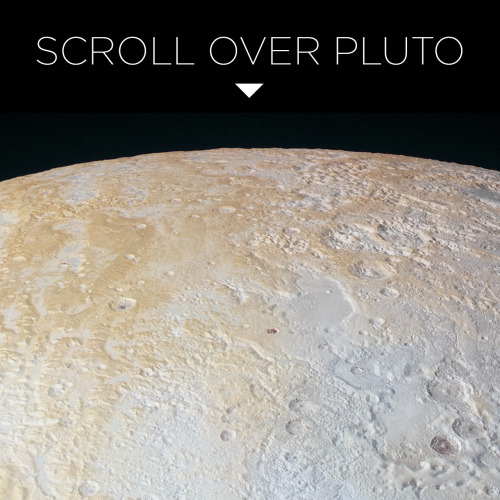
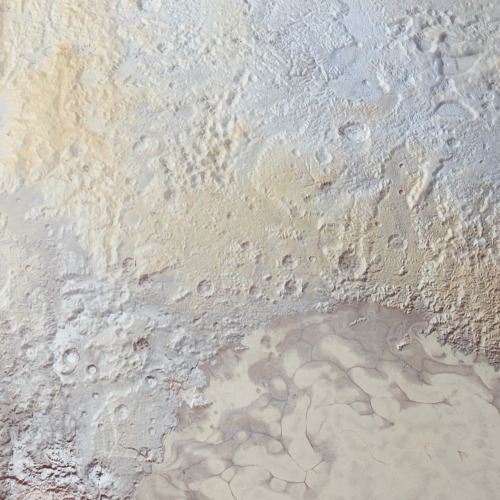
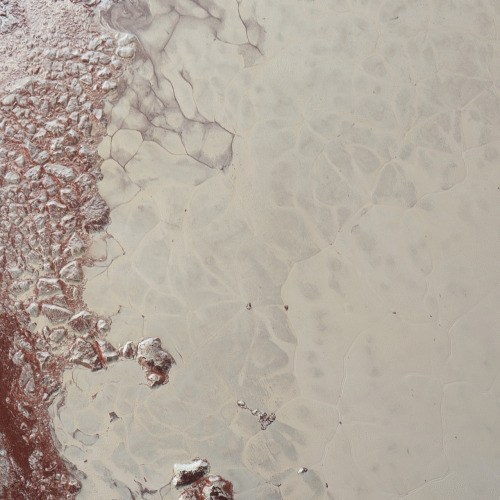
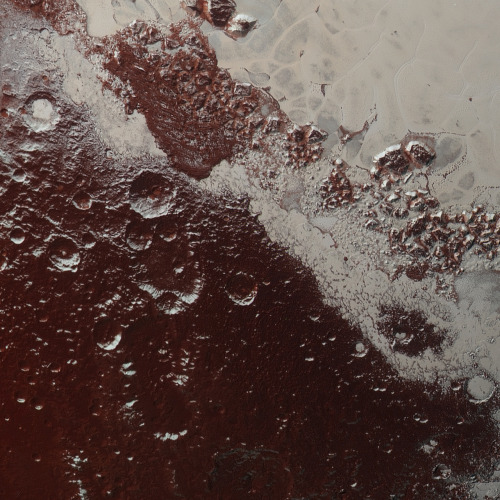
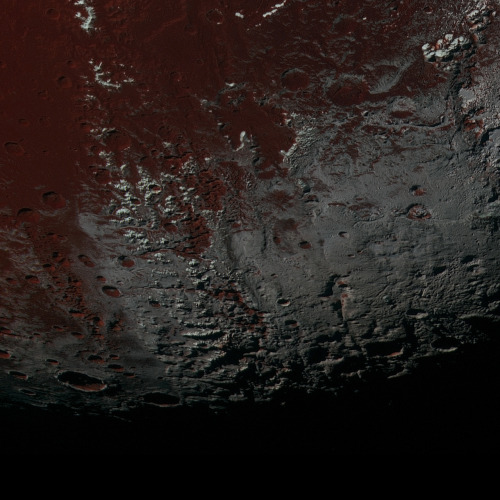
This is one slice of an incredible high resolution, enhanced color image of Pluto, recently released by NASA. You can see the full, larger version here.
Credit: NASA/JHUAPL/SwRI
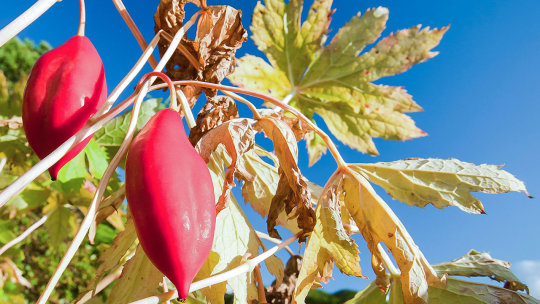
Notch another victory for synthetic biology. Researchers report today that they’ve engineered a common laboratory plant to produce the starting material for a potent chemotherapy drug originally harvested from an endangered Himalayan plant. The new work could ensure an abundant supply of the anticancer drug and make it easier for chemists to tweak the compound to come up with safer and more effective versions.
Continue Reading.

Lest we forget
funny tumblr [via imgur]
-
 mrmcperson liked this · 2 years ago
mrmcperson liked this · 2 years ago -
 polkapan liked this · 3 years ago
polkapan liked this · 3 years ago -
 persephone-tearose liked this · 5 years ago
persephone-tearose liked this · 5 years ago -
 scalpelfightclub liked this · 5 years ago
scalpelfightclub liked this · 5 years ago -
 profanities-of-common-sense reblogged this · 5 years ago
profanities-of-common-sense reblogged this · 5 years ago -
 askgoldiewithothers-blog liked this · 5 years ago
askgoldiewithothers-blog liked this · 5 years ago -
 mkkrato reblogged this · 5 years ago
mkkrato reblogged this · 5 years ago -
 cana-elph liked this · 6 years ago
cana-elph liked this · 6 years ago -
 empress-meeka liked this · 6 years ago
empress-meeka liked this · 6 years ago -
 coffee812 reblogged this · 6 years ago
coffee812 reblogged this · 6 years ago -
 mythicfanfluff101 liked this · 6 years ago
mythicfanfluff101 liked this · 6 years ago -
 bry2294-blog liked this · 6 years ago
bry2294-blog liked this · 6 years ago -
 jimmie8888 liked this · 6 years ago
jimmie8888 liked this · 6 years ago -
 ottercon liked this · 7 years ago
ottercon liked this · 7 years ago -
 ladyluck25 reblogged this · 7 years ago
ladyluck25 reblogged this · 7 years ago -
 diditt123 reblogged this · 7 years ago
diditt123 reblogged this · 7 years ago -
 queerly-me reblogged this · 7 years ago
queerly-me reblogged this · 7 years ago -
 sixgrams reblogged this · 7 years ago
sixgrams reblogged this · 7 years ago -
 bucketm0nkey reblogged this · 7 years ago
bucketm0nkey reblogged this · 7 years ago -
 sixgrams liked this · 7 years ago
sixgrams liked this · 7 years ago -
 sherif713 liked this · 7 years ago
sherif713 liked this · 7 years ago -
 spooky-taru-attack reblogged this · 7 years ago
spooky-taru-attack reblogged this · 7 years ago -
 isaderp reblogged this · 7 years ago
isaderp reblogged this · 7 years ago -
 cmholden reblogged this · 7 years ago
cmholden reblogged this · 7 years ago -
 nocticola liked this · 7 years ago
nocticola liked this · 7 years ago -
 salty--alien liked this · 7 years ago
salty--alien liked this · 7 years ago -
 peilinsirpale reblogged this · 7 years ago
peilinsirpale reblogged this · 7 years ago -
 peilinsirpale liked this · 7 years ago
peilinsirpale liked this · 7 years ago -
 thewritingsofvale reblogged this · 7 years ago
thewritingsofvale reblogged this · 7 years ago -
 toxicelixir reblogged this · 7 years ago
toxicelixir reblogged this · 7 years ago -
 tsuni-ami1313 liked this · 7 years ago
tsuni-ami1313 liked this · 7 years ago -
 irrelevantonlooker reblogged this · 7 years ago
irrelevantonlooker reblogged this · 7 years ago -
 yume-hime016 liked this · 7 years ago
yume-hime016 liked this · 7 years ago -
 lazy-butler reblogged this · 7 years ago
lazy-butler reblogged this · 7 years ago -
 technoxenoholic reblogged this · 7 years ago
technoxenoholic reblogged this · 7 years ago -
 doll-edition liked this · 7 years ago
doll-edition liked this · 7 years ago -
 springfey liked this · 7 years ago
springfey liked this · 7 years ago -
 redsparklycherryblossom liked this · 7 years ago
redsparklycherryblossom liked this · 7 years ago